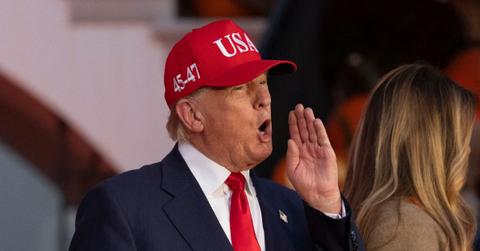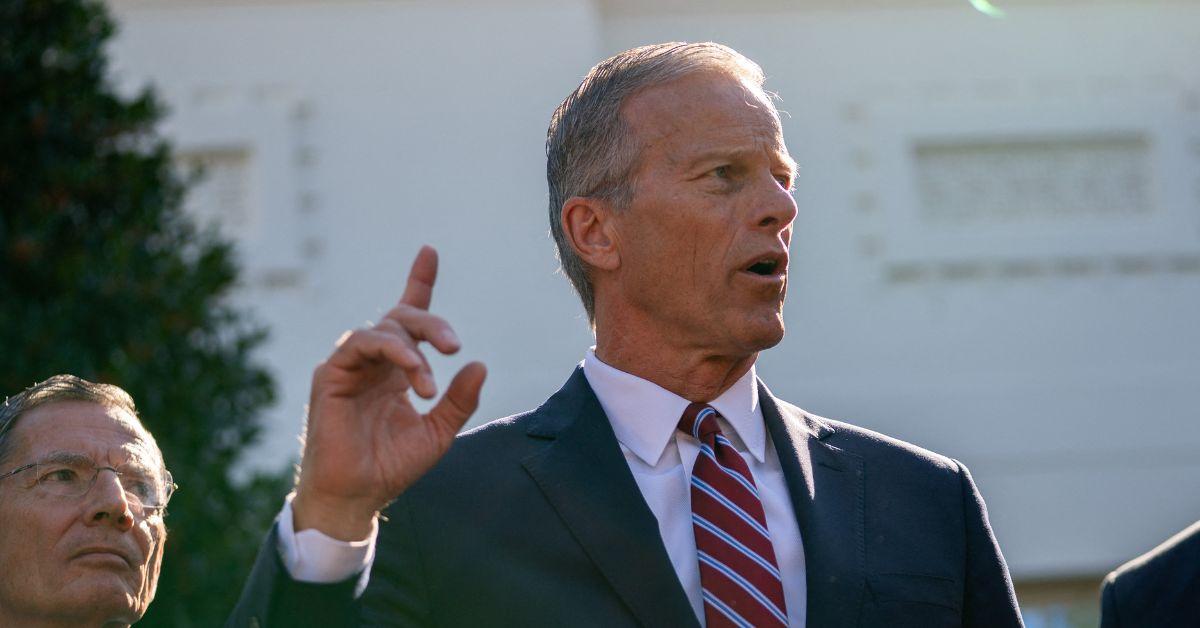Trump Wants to Invoke the Senate's "Nuclear Option," but What Does That Mean?
The nuclear option could fundamentally change how the Senate operates.
Updated Oct. 31 2025, 9:42 a.m. ET

It seems like President Trump might be ready for the shutdown to end. In a post on Truth Social on Oct. 30, Trump said that it was time for Senate Republicans to use what he called the "nuclear option" in order to bring the shutdown to an end.
“It is now time for the Republicans to play their ‘TRUMP CARD,’ and go for what is called the Nuclear Option — Get rid of the Filibuster, and get rid of it, NOW!” he wrote. Following this post, many wanted to know what Trump meant by the nuclear option and why it hasn't been done already. Here's what we know.

What does the nuclear option mean in the Senate?
The nuclear option is a common phrase that refers to a vote to end the filibuster in the Senate. The filibuster is a rule in the Senate that says that, unless a bill is related to the budget, it requires 60 votes to become law.
Because the Senate is often close to evenly divided, this has meant that it's difficult for either party to pass legislation through the Senate that doesn't have bipartisan support.
It's called the nuclear option because it would be a major step for the Senate to take, and it would fundamentally reshape how Congress worked moving forward. It's worth noting, though, that the Senate filibuster used to be invoked relatively rarely, and in this era of intense partisanship, it is used much more frequently to make sure one party doesn't get to pass what might be popular legislation.
Republicans have thus far been opposed to ending the filibuster.
Although Trump has now thrown his weight behind ending the filibuster, Republicans have tended to argue that keeping the filibuster in place benefits them, in part because Democrats have a much more aggressive legislative agenda than they do. John Thune, the Senate majority leader, said in October that the filibuster is “something that’s been a bulwark against a lot of really bad things happening with the country," per CNN.
Trump's post has made it clear, though, that he thinks it's worth bringing it to an end.
“Now WE are in power, and if we did what we should be doing, it would IMMEDIATELY end this ridiculous, Country destroying ‘SHUT DOWN,’” he wrote. “If the Republicans are not using the Great Strength and Policies made available to us by ending the Filibuster, the Democrats will exercise their rights, and it will be done in the first day they take office, regardless of whether or not we do it.”
It's unclear what might have prompted the president to move to a more aggressive stance on the filibuster, and whether the pressure he's now applying will have any impact on what the Senate ultimately does. The shutdown has now lasted for the entire month of October, and its impacts are likely to be felt more robustly the longer it continues, especially with a busy travel season ahead.